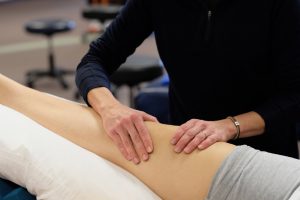Physiotherapy for Rheumatoid Arthritis
Rheumatoid Arthritis
What is rheumatoid arthritis?
Rheumatoid arthritis is an inflammatory condition which might affect a variety of joints within the body. Usually, the articular surface (lining) and synovium (fluid-filled sac coving the joints surface) become inflamed which may then interfere along with your normal hobbies or activities of daily living. The inflammation occurs as a result of the body’s system attacking various joints although the explanation for this is often not known. The inflammation may additionally affect the cartilage and also the ligaments within a joint which might be very painful.

There are a variety of symptoms which will be experienced if you have got autoimmune disorder and these can vary at different times. Physiotherapy may be a very effective way of reducing these symptoms and Tvastacare.com has specialist physiotherapists that may provide you with a comprehensive treatment programme that’s appropriate to satisfy your individual needs.
Potential symptoms may include:
- Pain
- Swelling of certain joints
- Stiffness which occurs especially within the mornings
- Redness over the joints
- Heat within the joints
- Unable to hold out your normal activities of daily living
- Tiredness
- Anxiety and depression
- Anaemia (reduced red blood cells)
- Weight loss
- Joint instability
- Deformities
- Rheumatoid nodules (lumps) over the joints
The most commonly affected joints are:
- Shoulders
- Wrists
- Metacarpophalangeal( MCP) joints (knuckles)
- Proximal interphalangeal (PIP) joints of the hand (middle joints of fingers)
- Knees
- Ankles
- Proximal interphalangeal (PIP) joints of the foot (middle joints of toes)
Most people with atrophic arthritis experience flare ups at different times and it’s during those times that symptoms are most severe. Therefore it’s important to develop an action plan together with your physiotherapist at Tvastacare which will facilitate your manage your flare ups most effectively to permit you to stay as active as possible during these times.

How is atrophic arthritis diagnosed?
There are variety of tests wont to diagnose arthritis and it’s often the combined results of those tests that confirm the disease. If you’re experiencing any of the symptoms mentioned above, it’s important that you just attend your GP as soon as possible. Early diagnosis of atrophic arthritis will provide a more practical treatment. The tests used include:
- Blood tests
- X-rays
- Ultrasound scanning
Number of symptoms once arthritis has been confirmed, it’s important that you just begin physiotherapy as soon as possible to optimise the management of your symptoms. Tvastacare.com will provide you with a full assessment and comprehensive treatment programme including a home exercise programme to assist you are taking control of your condition.

How will physiotherapy help with rheumatoid arthritis?
Physiotherapy can help manage and reduce your symptoms in different ways. Your physiotherapist at Tvastacare will encourage you to require a lively role in your treatment programme which is able to facilitate your to figure towards your goals.
Physiotherapy can help within the following ways:
- Pain control
- Reduce inflammation and joint stiffness
- Help you to return to your normal activities of daily living or sports
- Reduce tiredness
- Increase range of movement at joints
- Increase muscle strength
- Relaxation
- Improve cardiovascular fitness levels
What physiotherapy are used for rheumatoid arthritis?
There are a range of physiotherapy options that may be wont to treat autoimmune disease. the selection of treatment will rely on variety of reasons including your symptoms and therefore the severity of the condition.
Your physiotherapist at Tvastacare.com will work with you to style an individually tailored programme to optimise your treatment and help your remain as active as possible.
Potential physiotherapy treatments may include:
- TENS (transcutaneous electrical nerve stimulation)
- Massage
- Acupuncture
- Cardiovascular activity (swimming, cycling)
- Hydrotherapy
- Pacing advice
- Range of movement exercises
- Strengthening exercises
- Wax therapy
- Gentle mobilisation techniques
- Cryotherapy (ice therapy)
- Heat therapy
- Provision of splints
- Provision of adaptations to assist round the home
- Electrotherapy techniques (including Megapulse)
Summary
Rheumatoid arthritis is an inflammatory condition that mainly affects the joints of the shoulder, knee, wrist, hand and foot. The inflammation is caused by an attack of the body’s own system on the tissues in these joints. you will experience stiffness, swelling, tiredness and pain as symptoms of arthritis. Physiotherapy is a good thanks to reducing these symptoms and helps promote self-management so you’ll be able to keep doing all the activities of daily living that you just usually do. Please call Tvastacare at on +918800901567 today to book a rendezvous with one among our specialist physiotherapists. You’ll also book an appointment online.

